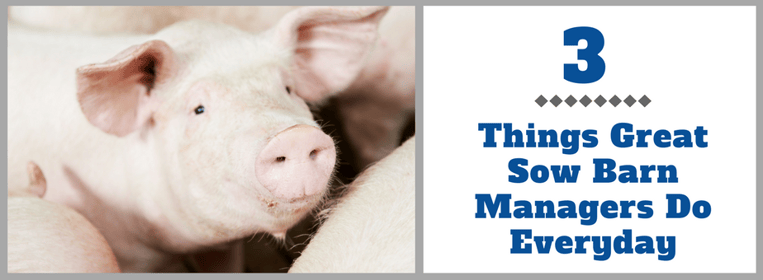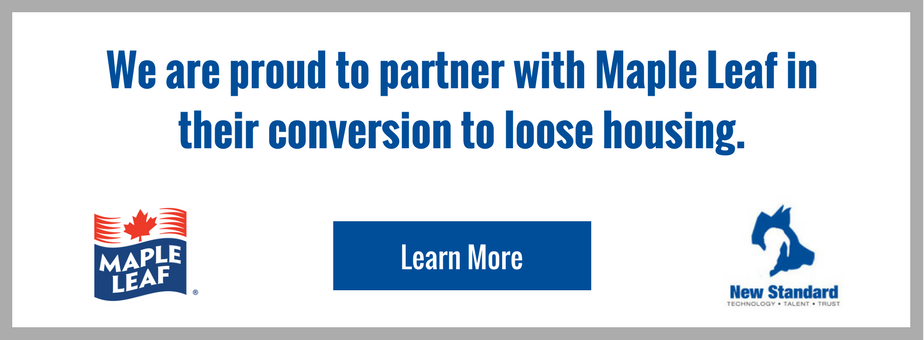
Steve Horton is the sow farm supervisor for Thomas Livestock in Broken Bow, Nebraska. Thomas Livestock converted to group sow housing four years ago. If there is one thing Horton has learned it is that having great barn management is a major determining factor in whether you succeed or fail in the business. Great barn managers contribute to a healthy working environment that keeps the best employees happy and engaged in the work of your farm. But what should great sow barn managers be doing every day to help create that environment?
We chatted with Horton and got his thoughts on the top three daily things that seperate great sow barn managers from... the other guys.
1. Greet your co-workers in the morning.
It is a simple thing, but you'd be surprised how easy it is to get caught up in daily tasks and forget to greet other workers each morning. Taking a little time to connect each day isn't just important for them, it helps everyone remember that we are all in it together. If you are able, try to greet employees by name and show an interest in their life outside the barn, not just their job performance.
It is vital for your workers to feel heard and personally valued for their contribution to the barn. If you take a little extra time to make them feel important, they will almost always work harder and more efficiently to continue contributing to the positive environment you've created.
Basic workplace kindness isn't just good for your workers, sows also respond to their environment. If barn workers are stressed and unhappy this will affect the way the respond to sows. The sows, in turn, may demonstrate increased stress behaviors.
2. Put people in position to succeed.
In a popular managment book, Jim Collins defined the basics of good management as getting the right people in the right bus headed in the right direction. If your barn is your bus, make sure you have the right people on board with you. This isn't always easy, as some barns are geographically isolated limiting your employee pool, but if you do a good job valuing the employees you have, more will come.
If you take the time to get the right people working in areas where they are naturally skilled, you will not only have happier employees, but you will start to see areas where they naturally shine. One example from our barns is Juan. He is a naturally calm guy and he has done very well in gilt training. The sows naturally follow him. If you take the time to get the right people in the right role, you will see success.
3. Teach, train, explain and keep people communicating.
Give your employees the tools and resources they need to succeed. Teach and train them well, and then give them space to do their tasks without feeling micromanaged. To do this well, you have to establish open lines of communication where employees know how to interact if there are concerns or issues. If you keep the drama out of the barn, you will have better employee retention and you will spend less time stressed about filling looming open positions.
In all honestly, the secrets of being a good sow barn manager really aren't any different from the secrets of being a good manager in any field. Treat your employees like you want to be treated, Give them your respect and your attention, and help them find a position that fits their passions and strengths. If you do these things in addition to good animal husbandry, your barn will succeed.




